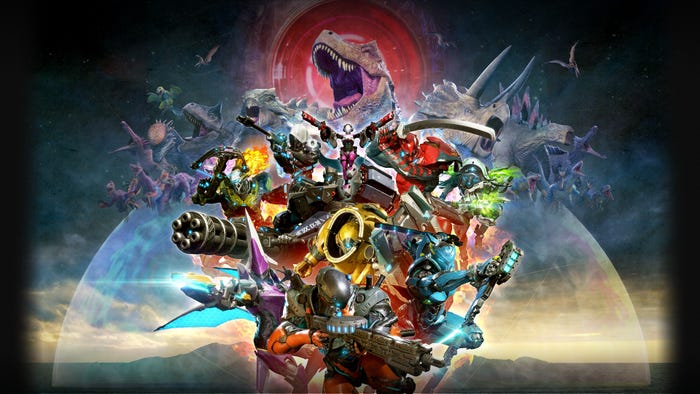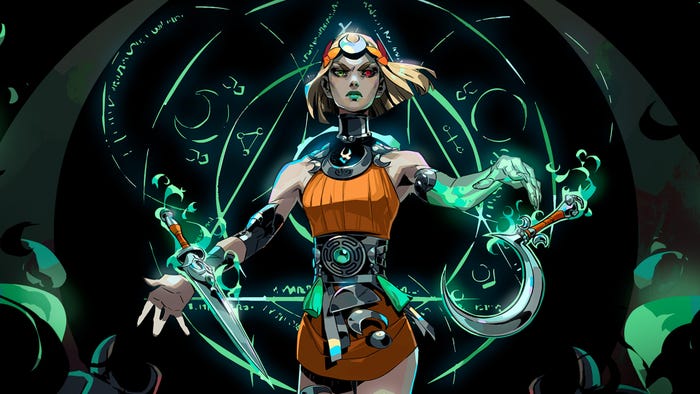AGDC: Marketing Your Indie Game, Guerrilla Style
At their panel at the Austin GDC, Mode 7's Paul Taylor and Strategery's Jay Moore talked building buzz and promoting independent games, stripping a complicated subject to its essentials: knowing the soul of your game and your company and communicating wha

At their panel at the Austin GDC, Mode 7's Paul Taylor (right) and Strategery's Jay Moore (left) talked building buzz and promoting independent games, stripping a complicated subject to its essentials: knowing the soul of your game and your company and communicating what sets you apart. Moore, who was previously a founding partner of GarageGames, said straight off that "the worst games are done strictly for the money... If you don’t have the fire in your gut that says 'if I don’t make this game there’s nothing on the planet I want to do more,' you're not going to have the quality of content to differentiate yourself as an indie." Speaking on creating a niche for yourself, Moore also offered that because it is extremely difficult to bring new idea to market and to capture a new audience, "one of the things I try to consider is don’t think about the ship and forget SKU based model." Instead, he said, "create consistent entertainment spaces," adding that a solid customer base allows you to have longer term revenue rather than ship and forget. Taylor, Mode 7's managing director, said one of the major challenges of being an independent developer was simply resources, and the fact that "you can’t necessarily do all your PR," saying it was very important to "specifically focus on what needs doing at what time" with strict schedules. He added that the primary way to meet the challenge was to hire a dedicated marketer or PR person, someone "as interested in that as you are at making games." Taylor also noted that with those limited resources, it was crucial and not terribly hard to find people to volunteer their services for an indie game. He illustrated the point by explaining that Mode 7's original website was the "shittiest you've ever seen," and specifically showed it to a web designer friend who he knew would be so off-put that he'd offer his services just to fix it. On the point of strategies and tactics for generating consumer awareness, Moore said it was crucial, because the 'so what' factor is so low to find things that attract consumer awareness, whether it be a proven gameology, previous titles company members have worked on, or even more simply, to have a "really solid advisory board around you." "That’s kind of leveraging other people... if you can do that you’re going to be able to create a lot more presence and have immediate brand credibility." "The corner stone," said Taylor, "is to build a website... If you’re going to invest in something, find someone that can give you a clear simple website with a way to contact you that’s obvious." Moore added that his mission critical first step was to hire a graphic designer to build a company brand identity, saying "If you can’t identify how valuable that is, you don’t understand what it takes" to succeed as an indie. "Know what the soul of the game" before you create that identity, Moore offered, because if you make a brand promise around that game that you don’t fulfill, you're essentially "defrauding customers." He went on to say that it was also important in building presence to understand how to architect community through guerrilla marketing. He offered a number of books such as Primal Branding, and said that studios need to begin to become a student in creating a need for the entertainment you're creating. Taylor also called out Kieron Gillen's How To Use And Abuse The Gaming Press article, something he personally employed for Mode 7, and said good networking and marketing simply comes down to "mechanical stuff." "Start being organized about how you communicate, schedule it properly and link it up together and make record about everything you do," he said, adding that companies should make sure the press knows you care about talking to them. Moore noted that partner press releases were also a valuable key tool in raising awareness, saying once you have the president of a technology company talking about your upstart studio is fantastic credibility-lending exposure. Asked about major hazards independents can avoid, Taylor said, first his most important piece of advice is to finish your game. After that, "pay attention to what’s happening to your game. If you sign it to a portal and it’s not selling, find another portal, or find another publisher." Finally, asked what their one takeaway from the session would be, Moore said, "If you’re not doing this because you’re passionate, even if you don’t succeed, you’re doing the wrong thing. If there’s anything else you can do, do it." Taylor offered that unlike Introversion's Mark Morris, who famously said that the company didn't take outside money because the company didn't want publishers fucking with their game, "Let your game fuck with the publisher." "Change preconceptions for your publisher," he said, "be game focused, be intelligent, and push yourself."
Read more about:
event gdcAbout the Author(s)
You May Also Like













